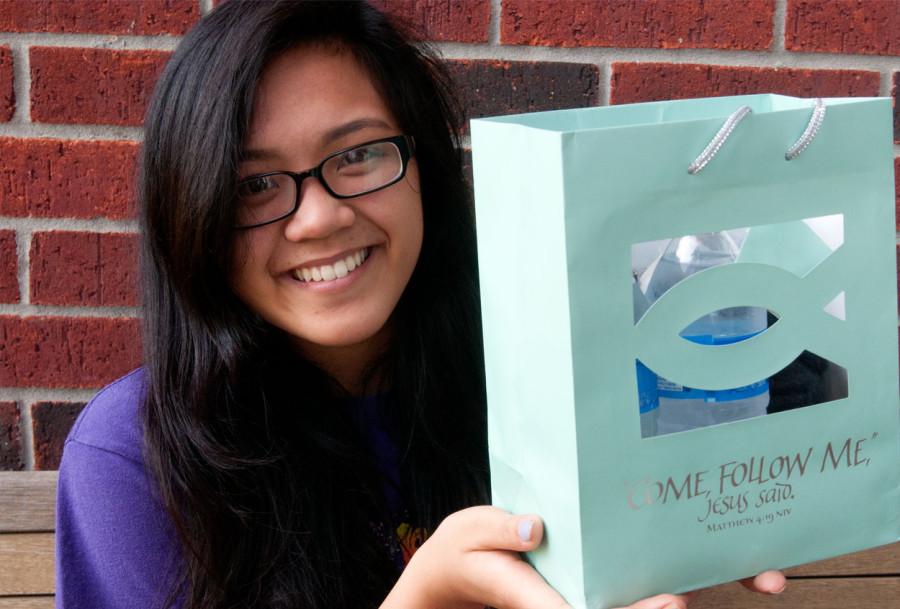Chain reaction
Students see an increase in random acts of kindness
Originally inspired by an act of kindness, junior Lorrie Tria makes it her mission to spread positivity.
“One random act of kindness can inspire someone forever, completely changing their world,” junior Lorrie Tria said. “I want to be the one who sets off a chain reaction, not only changing the life of one, but that of many.”
Tria witnesses the power of kindness on a daily basis. When she experiences these acts, she feels they are spurring the start of a movement.
“Kindness has done a lot for our school,” she said. “A lot of kind gestures get overlooked, but I truly see it everywhere. One act leads to another, and before students realize it, people are holding doors for each other and helping each other, it’s really empowering.”
Sophomore Alida Abraham also notices the positive energy that kindness brings, and hopes that this trend continue, beyond the school doors. “When people do nice things for each other, the environment changes,” she said. “The overall mood is better and with this trend, I find it easier to be myself. It’s really helped individuals in our society reach their potential, while also making them more mature and compassionate.”
Along with improving the individual’s maturity, Tria feels these generous actions can spark a chain reaction. Through personal experience, Tria has realized the power of kindness, and hopes to be able to spread it to others.
“I was originally inspired to perform random acts of kindness after I saw someone from my church make packets for the homeless,” she said “The packets had socks, water, toothbrushes, snacks and other necessities. I keep packets in my car now too. When someone is kind, it makes me want to do the same. Kindness is truly contagious, and I hope to play a role in spreading it.”
Researches at the University of California participated in studies analyzing the link between the rapid increase in kindness and the contagious nature of it, confirming that it spreads from person to person in society. Richard J. Davidson from the Center for Investigating Healthy Minds at the University of Wisconsin-Madison believes the level of kindness in society can be enhanced if children are taught empathy from an early age, considering compassion to be a skill developed through training.
“Random acts of kindness are special, because not only does the person receiving the act feel good, but so does the person providing it,” counselor Charley Ivy said. “Even the smallest act of kindness can raise a person’s mood, reminding them that they’re valuable. Making someone else feel valuable brings value into my life too, inspiring me to be as kind as possible.”



